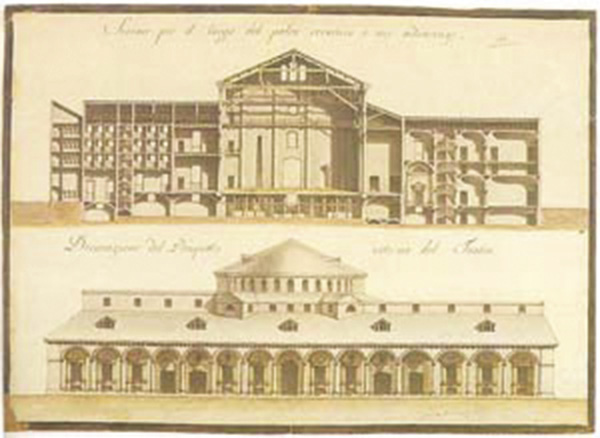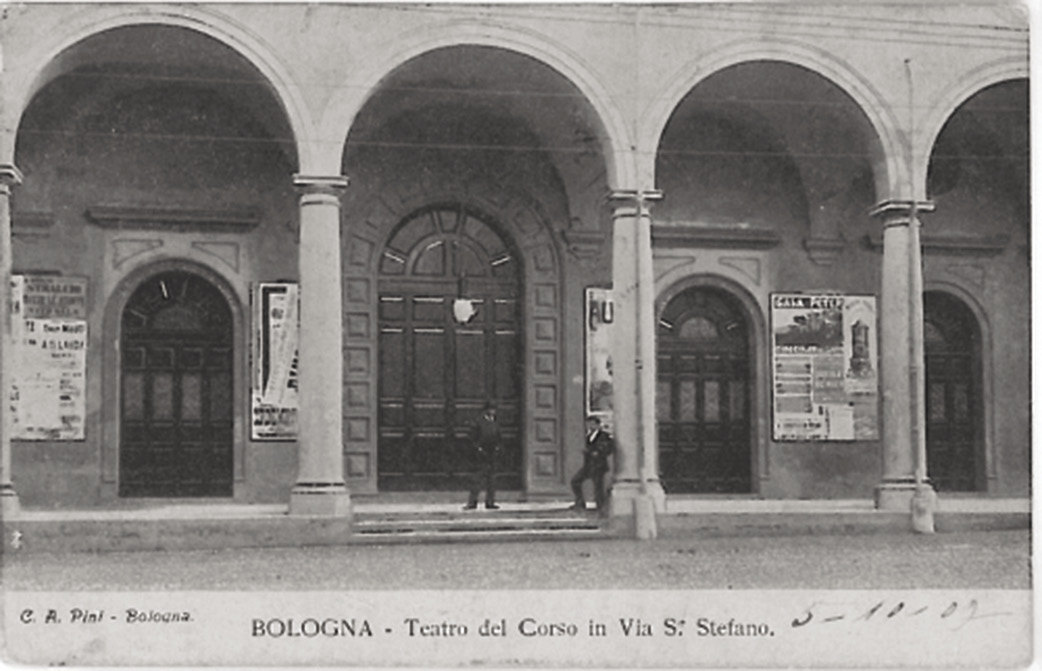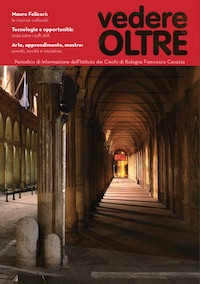The itinerary of Bologna's 'disappeared theatres,' which began with the narration of the events of the Zagnoni theatre, resumes with the Teatro del Corso, popular on Via Santo Stefano from the beginning of the 19th century until the Second World War. Owned by Giuseppe Badini, the theatre was built in a neoclassical style designed by architect Francesco Santini. It has an elliptical layout, 99 boxes in four orders, a gallery, a café, "representation" apartments and a hotel which welcomed artists and famous people. Opened on May 19, 1805, it also hosted Napoleon Bonaparte on June 20th and from that moment on showcased prose and opera companies every year, but also circus entertainment and various art shows, with programs that included works by Paer, Martini, Pavesi, Mayr, Zingarelli, Gnecco, Gioja, Mosca, Guglielmi, Farinelli, Brunetti, Mercadante. As well, Mozart, Bellini and Rossini, a musician who had a special bond with the theatre. 
In addition to being in fact one of the most represented authors in the Teatro del Corso, the composer from Pesaro made his debut as a singer in 1806 in Paer's Camilla and had troubles in 1811 when as a harpsichord master he complained to the authorities because of a heated bickering between orchestra players and chorus singers. Also, L’equivoco stravagante (The Curious Misunderstanding), although enjoying some success, was suspended after a few performances because the libretto was considered "licentious."
After alternating fortunes and great 'premieres' (in 1906, Alfredo Testoni and Ermete Zacconi's Cardinal Lambertini is one), the theatre remained closed for long years and reopened in 1925 to focus almost exclusively on comedies in dialect proposed by the Compagnia del Teatro Bolognese (Bologna's theatre company).

Only twenty years passed until the fateful day of January 29, 1944, when, during the rehearsals of the Barber of Seville, the city was bombed: the orchestra players and maestro Adolfo Alvisi were miraculously saved and the ruins of the theatre were used by the displaced as refuge.





.png)